We, the Black People in America, in consequence of arriving at a knowledge of ourselves
as a people with dignity, long deprived of that knowledge as a consequence of revolting
with every decimal of our collective and individual beings against the oppression that
for three hundred years has destroyed and broken and warped the bodies and minds
and spirits of our people in America, in consequence of our raging desire to be free of
this oppression, to destroy this oppression wherever it assaults mankind in the world,
and in consequence of our inextinquishable determination to go a different way, to
build a new and better society in a new and better world do hereby declare ourselves
forever free and independent of the jurisdiction of the United States of America and the
obligations which that country’s unilateral decision to make our ancestors and ourselves
paper-citizens placed upon us.
We claim no rights from the United States of America other than those rights belonging
to human beings anywhere in the world, and these include the right to damages,
reparations, due us for the grievous injuries sustained by our ancestors and ourselves
by reason of United States lawlessness.
Ours is a revolution against oppression – our own oppression and that of all people
in the world. And it is a revolution for a better life, a better station for mankind, a surer
harmony with the forces of life in the universe (Republic of New Africa 1968a).
Over the days of the founding convention, they had accomplished a great deal. They decided on opening up the nation to all African Americans and not requiring some level of commitment/awareness beforehand. They also structured the government in elaborate detail.
The convention was charged with excitement from beginning to end. The excitement flowed from the issues and from the momentousness of black people finally taking upon themselves to create the government which, for so long, we had needed. And it flowed, too, from the personalities – the mentally brilliant, serious nationalists who had gathered from all over the country, their humility and camaraderie, their sense of self-possession and assurance – indeed, their personal styles: Baba Oserjeman Adefunmi, with his strictly authentic formal Yoruban dress, beautiful long robes and beads, his wives, his entourage, his pomp and circumstance; the portly, goateed, dignified Obabos Alowo, business manager for a black Los Angeles tool shop, bring with him the wisdom of many years in the struggle, including 20 years as a black nationalist in the Communist Party, and many years matching wits with and winning against the white man; the strong yet softly beautiful, darkly lovely widow of Malcolm X, Betty, who would whisper to me that she wanted to hold an office in the new government; the indomitable Queen Mother Moore, of New York City and the freedom struggle all over America, 73-years-old, as active and alert and as full of a sense of humor as one half her age, a veritable institution of our struggle, who with her sister, Virginia Colins of New Orleans (who would become a Vice President of the Republic), and other women had worked for reparations at a moment when most of us could not spell the word, whose entire life is an example of personal commitment to, personal sacrifice for freedom for our people, and justice for individuals (many men once on death row, owe their reprieves to Queen Mother), and Henry “Poppa” Wells of Detroit, almost as old as Queen Mother, quite as clear in his mental processes, him too with the precious ability to laugh at himself, and at the world, a one-time Muslim who studied years ago under Mr. Farrard (mentor for Elijah Muhammed) but now a vocal and inveterate atheist who could not believe in a God who would permit the things which have happened to black people during the last 300 years, whose passionate speeches on the need for nationhood, made on the floor of the large, crowded Fellowship Hall, so endeared him to us all that, after naming Ray Willis Speaker of the National Council of Representatives (our legislature), we names Poppa Wells Vice Speaker.
On the evening of that first day, Saturday, we began the process of electing officers of the government. We met in the modern, 500-seat Helen DeRoy Auditorium on Wayne State University Campus. The Malcolm X Society had come prepared to work for election of certain persons to specific offices. Brother Gaidi was our choice for first Vice President. Betty Shabazz was our choice for Second Vice President, but we did not know, until after she had arrived at the Convention – indeed, until moments before the nominations began and she learned over and whispered to me – that she would accept. Robert F. Williams was our choice for President. In retrospect the idea of nominating and electing Robert should have been obvious: he was, after all, the foremost living black nationalist, from America, in the world. But the actual idea came from the brain of Brother Agbo (Charles Enoch), who, at one of the preparatory meetings of the preparatory meetings of the Malcolm X Society excitedly broached the idea, pointing out, among other things, that Robert was the only person with stature enough to unite all black nationalists in America, that he was, in addition, a tried revolutionary and a consistent black nationalist. Robert’s international standing was also important, as was the fact of his residence in China. There was no thought from that point on but that we should nominate Robert.
The day emerged with a government as well as its leadership. These were quickly identified by the US government as depicted below:
- who would join?
- what would they do - specifically?
- why would they choose the tactics that they did?
- what would the US government do in response (following the rebellion/riot of 1967 and growing black militancy throughout the country)?
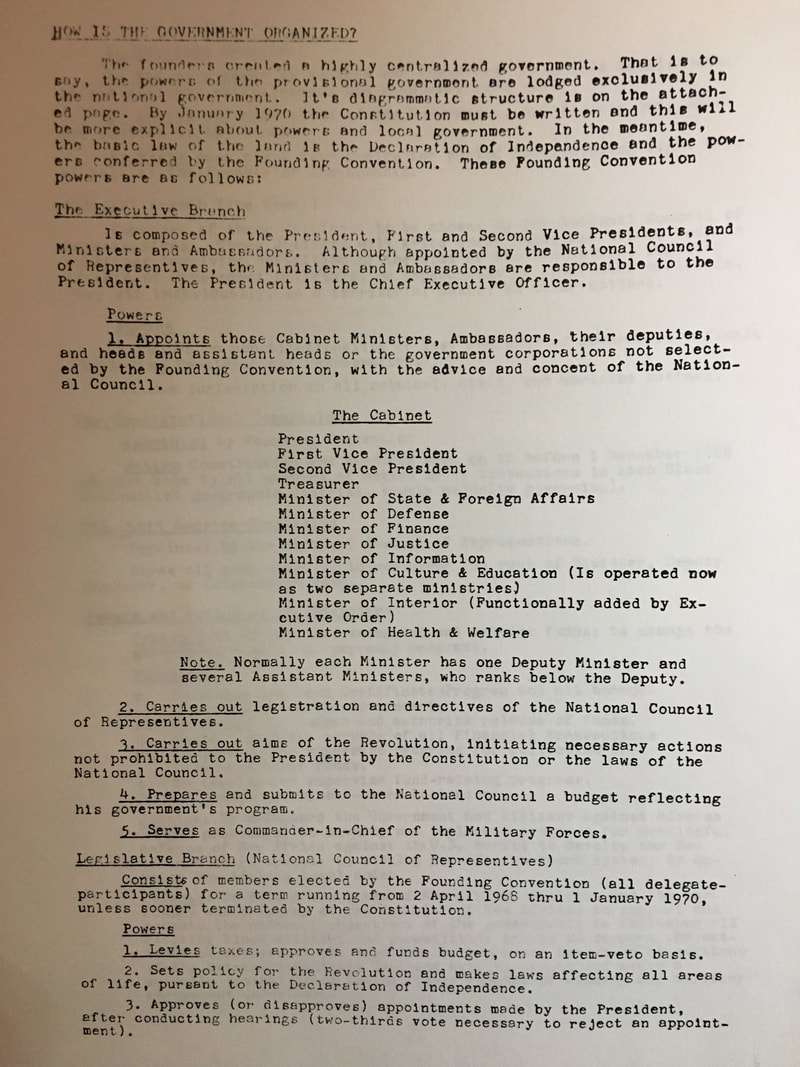
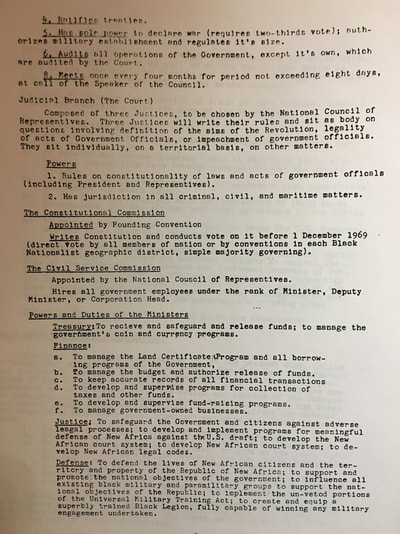
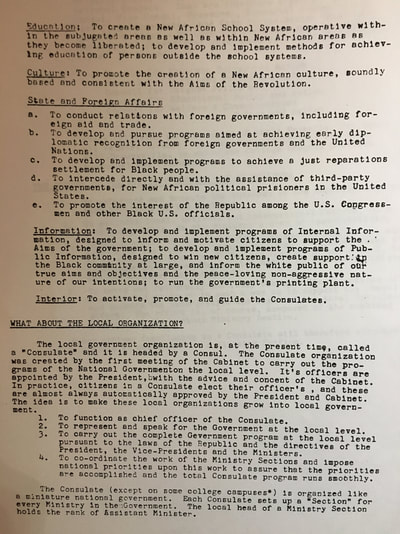
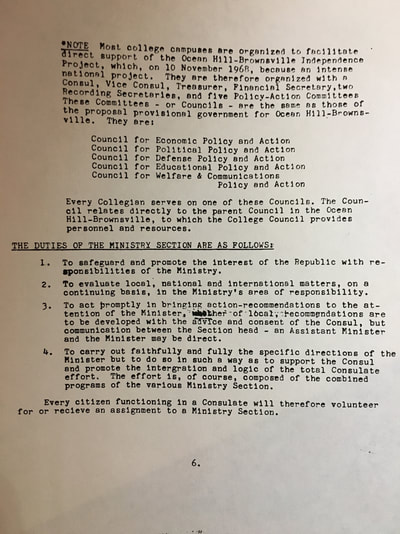
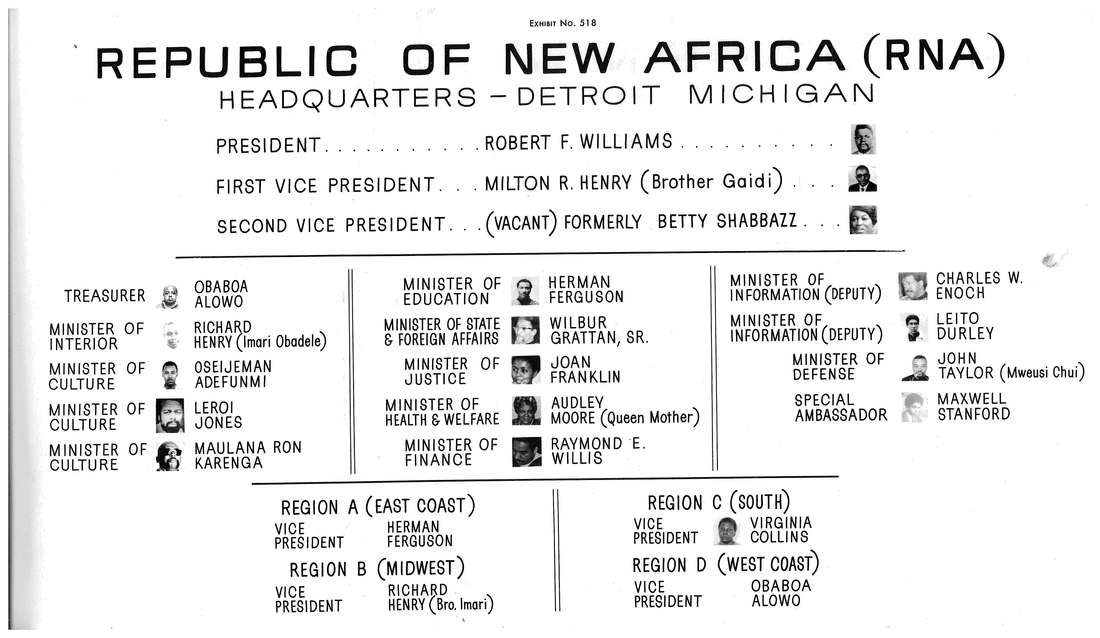
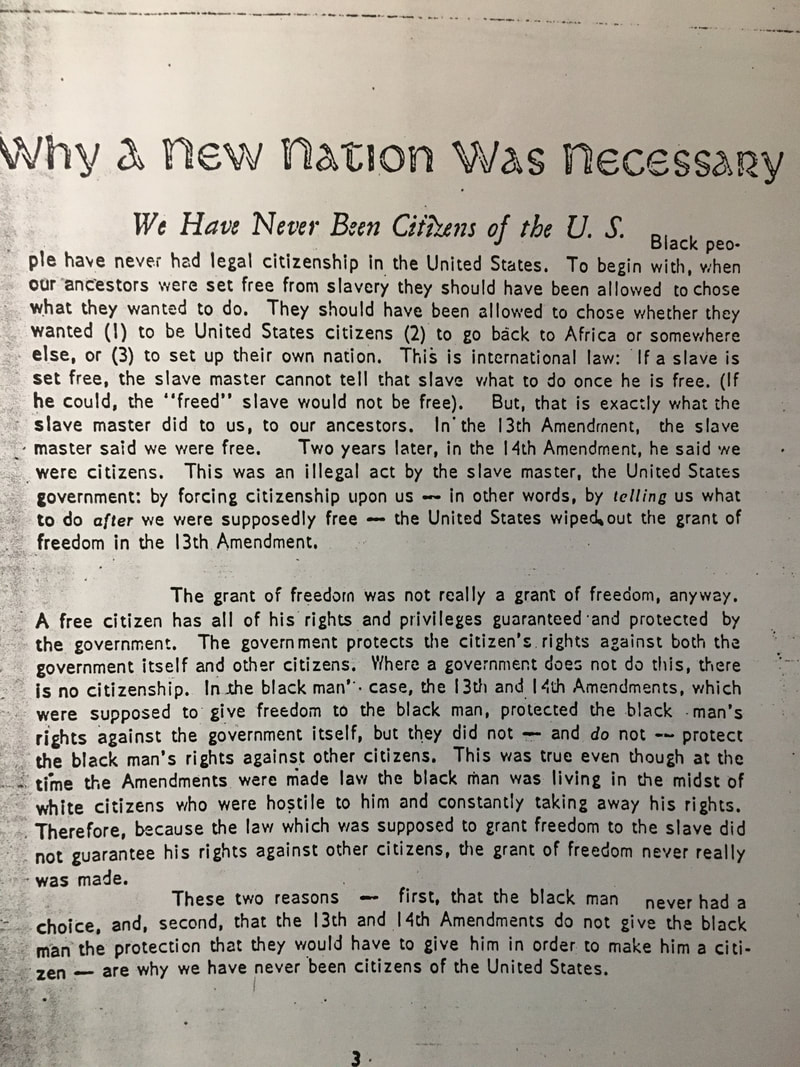
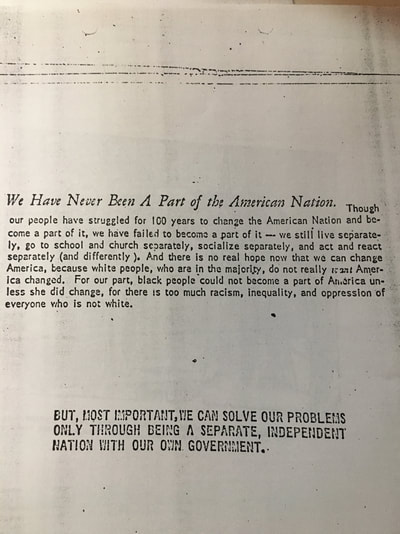
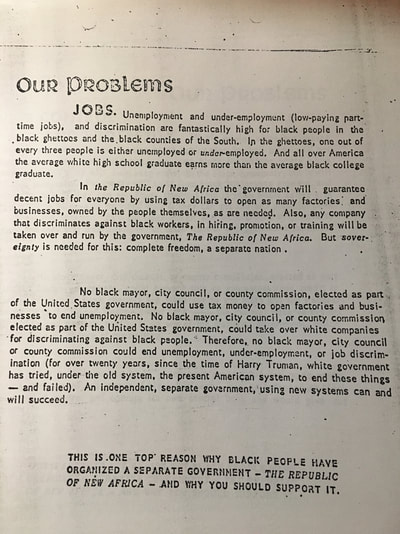
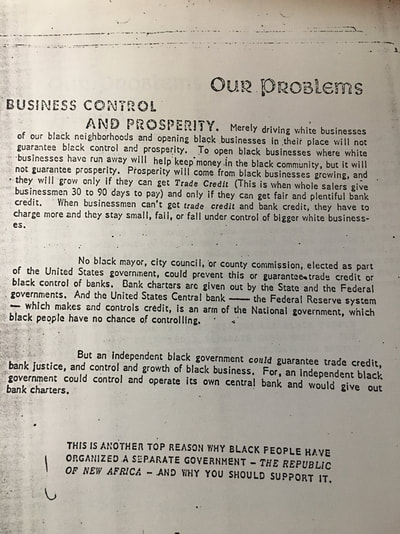
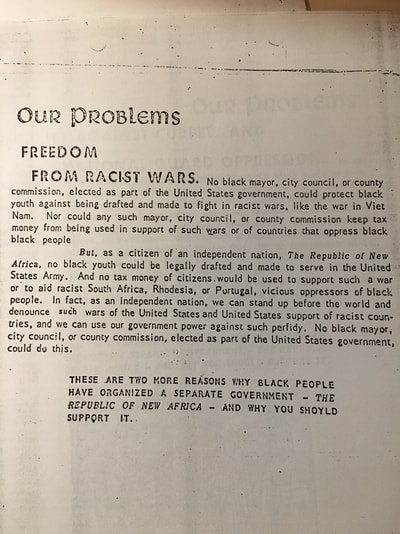
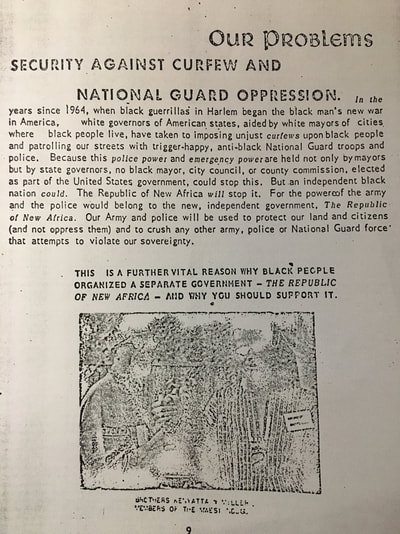
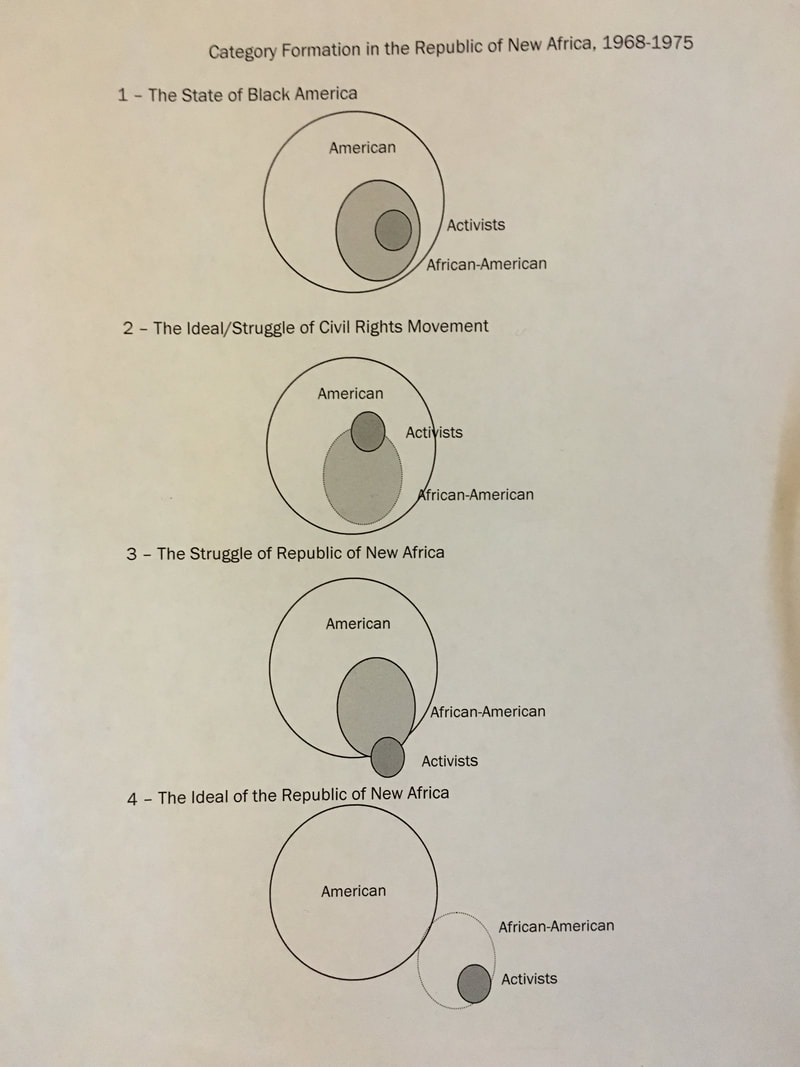
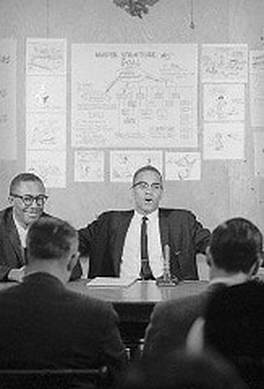
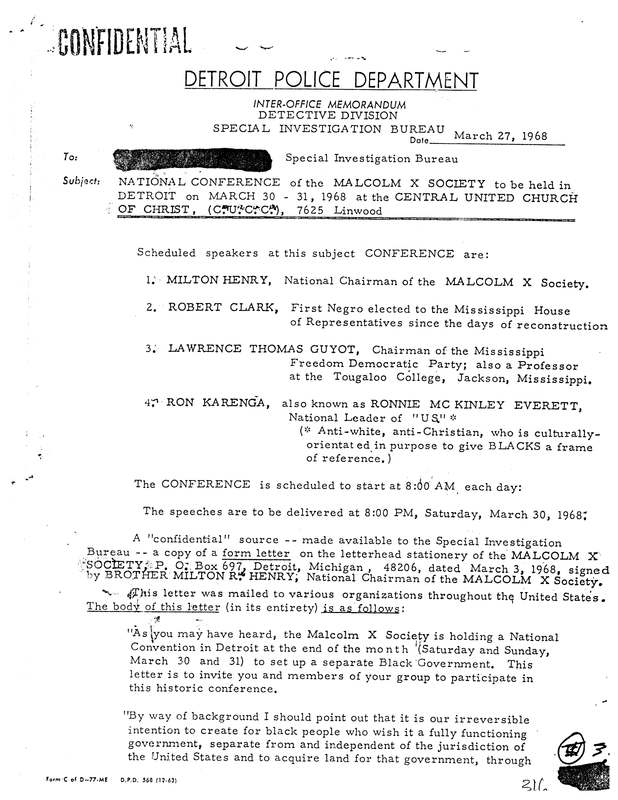
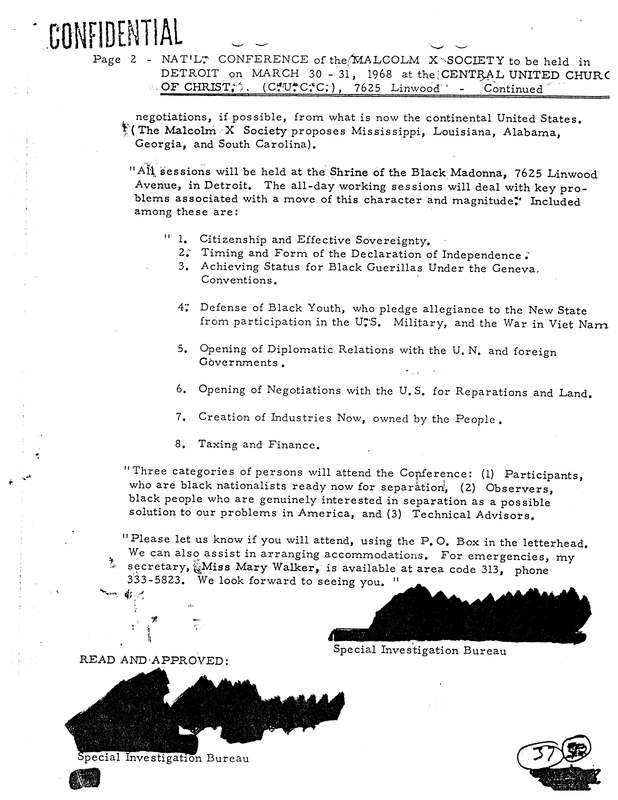
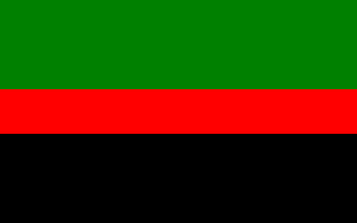
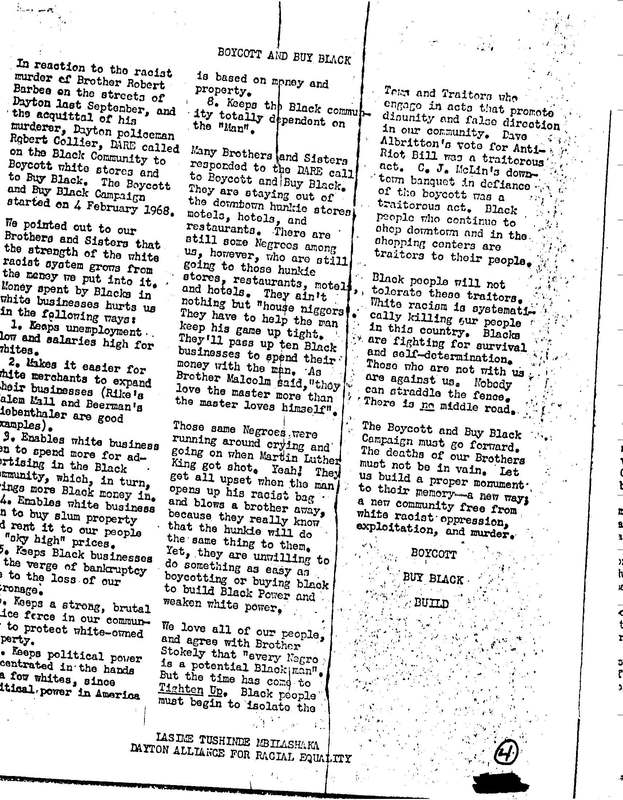
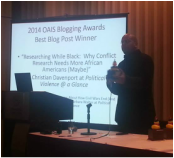
 RSS Feed
RSS Feed
